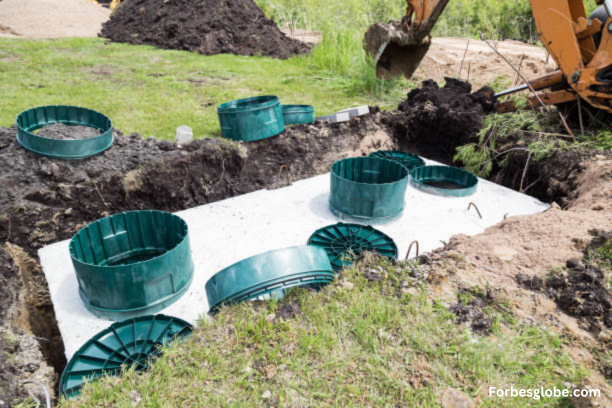Key Takeaways
- Explore modern septic system innovations that reduce environmental impact.
- Learn about alternative waste management solutions like composting toilets.
- Discover how community-led initiatives are transforming waste management.
- Understand the role of governmental policies in encouraging sustainable practices.
- Highlight the shift towards greener waste disposal systems globally.
The Changing Landscape of Waste Management
In recent years, environmental sustainability has emerged as an integral aspect of waste management, leading to major advancements in both the design and functionality of septic systems. Traditional septic systems, which once relied solely on passive treatment processes, are now evolving to incorporate nitrogen-reducing septic system. These systems are excellent ways to reduce harmful nitrogen output, contributing to aquatic dead zones where marine life cannot exist.
Traditional waste disposal methods pose significant environmental burdens, necessitating innovation. Modern septic systems incorporate treatment enhancements and sophisticated designs that reduce pollution levels. A key advancement involves adopting advanced filtration and process technologies to allow effective breakdown and purification of wastewater before entering ecosystems. As a result of environmental concerns, more sustainable waste management practices are increasingly adopted globally, aimed at protecting natural water sources and replenishing their reserves.
Innovative Technologies in Septic Systems
Technological innovations have transformed traditional septic systems into smarter infrastructure as the world embraces sustainability. Today’s advanced systems boast features like aerobic treatment units and biofilters to maintain environmental balance; these upgrades have increased efficiency by decreasing failure risks while becoming more eco-friendly.
- BIO-digesters: These innovative systems utilize anaerobic digestion technology to convert human waste into renewable energy source biogas, providing both volume reduction and energy production benefits. Furthermore, facilities deploying biodigesters experience reduced fossil fuel dependence and decreased greenhouse gas emissions.
- Nitrogen-reducing technologies: Technology designed to decrease the nitrogen content of wastewater is a crucial solution to prevent ecosystems in the water from overgrowing because of excessive nitrogen levels. Excess nitrogen intake contributes to algal blooms that deplete oxygen from water bodies, potentially endangering aquatic life and harming their ecosystems. By lowering nitrogen levels through technological solutions such as these, ecosystems become healthier.
By integrating such technologies, septic systems contribute positively to our environmental objectives, helping preserve natural ecosystems and enhancing human health through cleaner, safer waste treatment solutions.
Alternatives to Traditional Waste Disposal
Innovation isn’t limited to commercial septic system technology alone. Alternative waste disposal solutions have recently become increasingly popular with eco-minded communities. Composting toilets are one such effective alternative that has gained great traction among these groups; composting toilets offer an environmentally friendly solution by recycling human waste into compost for reuse in soil health enrichment projects. Composting also saves water compared to traditional water-intensive sanitation systems, producing an end product with rich nutrients that benefit soil health.
Greywater systems have become an amazing innovation in waste management. By recycling domestic household wastewater like that from sinks, showers, and laundry machines for non-potable uses such as irrigation or toilet flushing, greywater recycling systems allow households to drastically cut freshwater usage while aiding conservation efforts and relieving pressure on sewer infrastructure.
Tree planting initiatives often complement these systems, with green roofs and rain gardens aiding natural rainwater absorption while filtering pollutants before they enter local waterways. Innovations in waste treatment and greywater recovery demonstrate not only direct environmental benefits but also shifts in consumer mindsets towards conservation and resource efficiency—vital components to creating a more sustainable future. These approaches represent critical steps forward towards an environmentally responsible future for us all.
Community and Grassroots Initiatives
The power of community-led efforts is exemplary for fostering sustainable waste management practices. Across the world, grassroots movements are galvanizing communities, raising awareness, and implementing local projects that cultivate deeper public understanding and participation in green practices. These initiatives, driven by local needs and perspectives, encourage innovative waste management solutions tailored to specific environmental challenges.
For example, urban community programs widely teach citizens how to utilize compost systems effectively and encourage simple practices like waste separation and recycling. School initiatives empower the younger generation with knowledge about ecological stewardship and sustainable living.
By collaborating with local governments, non-governmental organizations (NGOs), and technology experts, communities often drive practical changes, achieving notable successes in reducing pollution, conserving resources, and fostering sustainability. The ability to mobilize action at the grassroots level is vital in encouraging larger systemic shifts toward sustainable waste management.
The Role of Policy and Regulation
Government policies and regulations are essential for fostering the adoption of sustainable waste management technologies and practices. Legislation can support environmental initiatives with grants, tax incentives, and public funds to upgrade infrastructure. Governments also play a pivotal role in setting waste treatment standards, monitoring compliance, and enforcing environmental laws.
The establishment of progressive waste management policies enables innovation by financially supporting research and development in sustainable technologies. For instance, some regions offer subsidies for homeowners who upgrade to advanced septic systems, thereby reducing the ecological impact of domestic waste. Additionally, governments can enhance public awareness by conducting environmental campaigns and information-sharing initiatives, emphasizing the benefits of greener waste management practices.
Such policy frameworks offer a platform for collaboration, encouraging dialogue between public agencies, private entities, and civil society to ensure that goals align with broader ecological sustainability objectives. These efforts collectively chart pathways toward a more resilient future, fostering innovations prioritizing environmental health.
Also Read:

